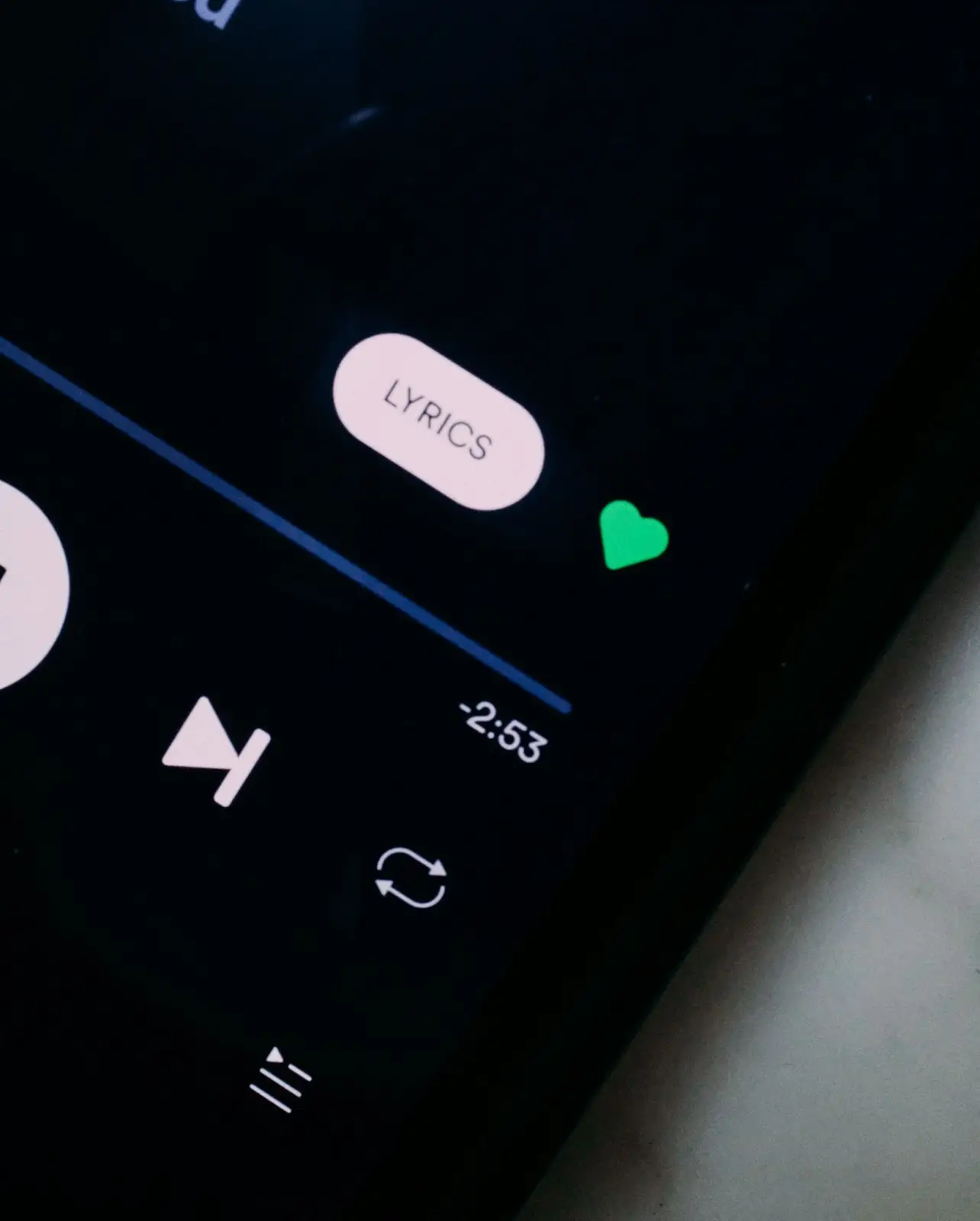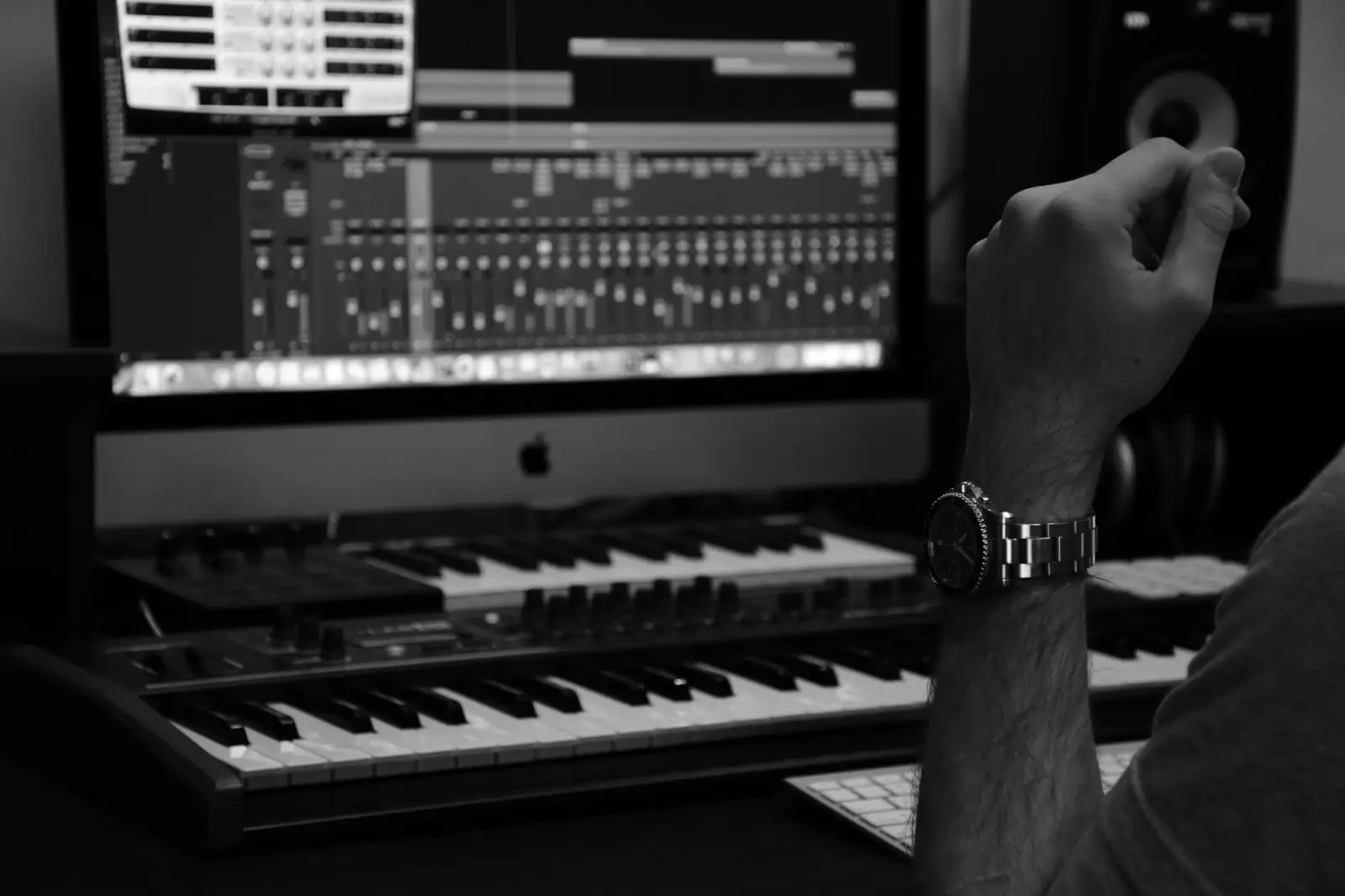The other morning I woke up with MC Hammer’s U Can’t Touch This inexplicably bouncing around inside my noggin. Aside from the obvious question of ‘ why is this happening ’, it got me thinking: what makes a song catchy?
Because, after all, as a songwriter you want to grab the audience’s attention, not send them into a coma.
In this article, we’re going to look at 10 tips that are guaranteed to make your song catchy. I can't promise a hit song, but if you follow these suggestions you will create your own earworm to unleash on the world.
Ready? Hold your horses! A word to the wise...
Rome Wasn't Built In A Day
Learning the craft of songwriting takes time. Yes, these tips will help you come up with memorable songs, but that's only part of the picture.
Being able to write a catchy melody isn't a skill that people are born with so be patient, and be prepared to put in the effort.
Having some knowledge of music theory is also beneficial, both for songwriting and for streamlining your production process. Put aside some time each week to learn something new about music, and you'll soon be a fountain of knowledge!
Alright, rant over. Let's dive in!
10 Tips to Help Write a Catchy Song

Tip 1: Write a Strong Lyrical Hook
One way to get your song stuck in someone's head is with a strong lyrical hook - a short phrase that captures the essence of what the song is about.
A hook needs to be short, simple, and to the point, like these gems from yesteryear:
- We will, we will rock you (Queen)
- Hey, Jude (The Beatles)
- Ah, ha, ha, ha, staying alive (The Bee Gees)
- Don't you want me baby (Human League)
- Might as well jump (Van Halen)
A lot of popular songs have a catchy hook that's both lyrical and musical in nature. But it's worth considering the lyric and melody aspects as separate ideas when you're writing, because sometimes the lyrical hook is a spoken one:
- 'Cause I ain't no hollaback girl (Gwen Stefani)
- Get your freak on (Missy Elliot)
- Jump around (House of Pain)
And of course my good friend:
Oftentimes, a lyrical hook will also be the title of the song, but not always. Smells Like Teen Spirit was arguably Nirvana's breakthrough song, but everyone will sing along to the lyrics 'here we are now, entertain us' .
The key to finding a strong lyrical hook is to pay attention to life around you and keep your ear open for fragments of conversation you hear in passing. Jot down anything that catches your ear, and you'll soon have a notepad full of potential hooks!
Tip 2: Keep Your Lyrics Simple
Aside from the hook, a song's lyrics can go a long way to making it catchy. Memorable lyrics use simple, everyday language that everyone and their dog understands. If a word in a song is difficult to pronounce, it's going to be hard to remember.
Likewise with subject matter; make it relatable. There's a lot of songs written about love, because it's a universal theme that everyone can relate to. Apart from Hannibal Lecter maybe.
Bruce Springsteen remains popular to this day because his lyrics are a) relatable (everyone loves a working class hero); and b) simple - no flowery language on Born in the USA
Simple lyrics doesn't mean you have to write nursery rhymes (although Baby Shark did alright for itself), but avoiding complicated language in your song lyrics is a smart move.
Tip 3: Write a Strong Musical Hook
Alongside your lyrical hook you'll need a musical one too; nothing sticks in your head like a catchy tune. As previously discussed this is often a memorable melody to which the lyrical hook is sung, like in We Will Rock You, Hey Jude, or Adele's belter Rolling in the Deep :
Sometimes the songwriters will use an additional music hook to make the song extra catchy. Deep Purple did this to great effect with Smoke on the Water . Here's the opening riff:
It grabs the listener right away, and it's easy to remember - possibly one of the most memorable melody hooks ever.
The lyrical hook happens in the chorus (and in this case is also the title of the song).
And look! The music hook comes right back in at the end of the chorus.
Another good example of a hook-laden song is Bruno Mars' Uptown Funk. It's positively dripping with lyrical and music-based hooks, too many to list here!
In the pop music industry, writing a good hook is the golden egg of music composition. Learn how to do it well and you'll be laughing all the way to the bank.
Tip 4: Write a Catchy Melody
In addition to words and music that function as short, snappy hooks, a catchy song should also have a great melody throughout. After all, most songwriters want to write something an audience can sing along with.
In most popular songs, the vocalist will be singing the melody line, but the same rule applies if you're creating instrumental tunes.
So what makes a catchy melody? One way to know if your idea is an ear-worm is how easy it is to hum. The range of notes will be small, and the rhythm will be catchy enough to grab the listener's attention, but not so complicated they can't replicate it.
When you create melodies you can also make them catchy by using repetition; it's kind of an enforced catchiness - if the audience hears the melody enough times it'll stick in their head.
This can work within the larger structure of the song (where the chorus is repeated), but also within the structure of each section too, repeating the melody line during a section, or using fragments from it during the verse to hint at what's about to happen.
If you're worried about sounding too same-y use subtle changes to alter the melody slightly. Try cutting out a couple of notes at the end of the phrase, or only using part of the melody.
Writing melodies is no easy task . Writing catchy melodies is even harder, but it's something you'll get better at the more you do it.
Tip 5: Keep Your Music Simple

A catchy song does not have to be a complicated one. Some of the most memorable songs in pop history are also the simplest, and this applies to both the melody and the chord progression.
While your inner artist may want to dazzle the world with your musical abilities, complex melodies and far-out chord progressions don't make catchy songs. ( Bohemian Rhapsody is a notable exception to this rule).
Simple melodies and chord progressions are just easier for our brains to make sense of. So when you're creating your next song use fewer notes, and opt for a simple harmony.
Paul Barsom argues that simplicity is one of the key elements for making a song catchy. And since he's an associate professor of music composition at Penn State, he knows what he's talking about.
Tip 6: Familiarity is Your Friend
One thing that is guaranteed to make a song memorable is familiarity. A song that's played on the radio 30 times a day will inevitably become ingrained in the listeners head, whether they like the song or not. That's just how the brain works: it loves patterns and gets excited anticipating their return.
Take advantage of this by making use of repetition in your music and lyrics.
The familiarity card also works with genres. People who are used to listening to a certain style of music are going to have a much easier time digging a new tune in that genre.
For example, someone who's a big fan of punk rock is more likely to consider the latest release by American Thrills a catchy song, compared to someone who listens exclusively to opera.
So whatever genre you're writing in, make sure you know it inside and out.
Tip 7: Structure Your Song Wisely
Repetition is good, but structure your song in such a way that there's a build up to that repetition. Good things come to those who wait, and all that.
The most common structure for a pop song is the verse-chorus form. The anticipation lies in the verse, and the payoff happens during the chorus, which is often where you'll find the hook too, though they're not the same thing .
A smart way to engage listeners is to add something at the top of the song that hints at what's to come, usually the hook.
However you structure your song, make it exciting.
Tip 8: Choose Your Sounds Wisely
Unless you're Nickelback, it's a good idea to choose unique and interesting sounds to help your song stand out to the listener.
Finding a special sound for your song, whether it's a one hit sample, or a different guitar tone is more likely to make it memorable to the listener when they hear it, and will help make it a catchy song.
Tip 9: Rhythm Is Gonna Get You
At least, that's what Gloria Estefan predicted, and she was right. Rhythm plays a huge part in music; it helps define a series of notes into a melody, as well as providing the foundation upon which the melody rests.
So make sure the underlying rhythm in your song complements the melody. If the melody is full of syncopation , make the rhythm of the percussion or drum part sound simpler and more foundational. If the melody has less rhythmic movement make the percussion more high energy.
Tip 10: Focus on High Production Quality

The world is full of catchy songs, and if you want your song to stand out on a first listen, make sure your production chops are the very best they can be. If you know mixing is not your strong point, hire someone else to mix for you, or devote some time to learning mixing skills from YouTube tutorials and blogs.
Production quality also includes the artists' performance. As well as being technically correct (i.e. in tune, in time etc.), the emotional resonance in a performance can contribute a lot to making a song catchy.
Don't let an otherwise catchy song be let down by a sub-par vocal performance, sloppy guitar riff, or bad production skills.
Conclusion
The final tip, which isn't really a tip, is that there is no hard and fast rule to writing a catchy tune.
Back to Professor Paul Barsom at Penn State: he thinks that it's impractical to try and come up with a formula for writing a catchy, sing-along song, and songwriters should instead focus on the process and let the catchiness come when it wants.
So play around with ideas, and have fun in the process. Use the above tips. Keep listening to music within your chosen style, and outside of it too. When something catches your ear make a note of what it was, and see if you can work something similar into your next potential hit.
Now go forth and maketh the catchy music!





